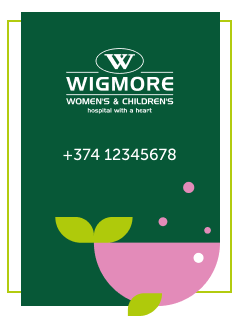Stuttering , also known as stammering Stuttering, is a speech disorder in which sounds, syllables, or words are repeated or prolonged, disrupting the normal flow of speech. These speech disruptions may be accompanied by struggling behaviors, such as rapid eye blinks or tremors of the lips.
The term stuttering is most commonly associated with involuntary sound repetition, but it also encompasses the abnormal hesitation or pausing before speech, referred to by stutterers as blocks, and the prolongation of certain sounds, usually vowels and semivowels. For many stutters repetition is the primary problem and blocks and prolongations are learned mechanisms to mask repetition, as the fear of repetitive speaking in public is often the main cause of psychological unease. The term "stuttering", as popularly used, covers a wide spectrum of severity: it may encompass individuals with barely perceptible impediments, for whom the disorder is largely cosmetic, as well as others with extremely severe symptoms, for whom the problem can effectively prevent most oral communication. The impact of stuttering on a person's functioning and emotional state can be severe. Much of this goes unnoticed by the speaker, and may include fears of having to enunciate specific vowels or consonants, fears of being caught stuttering in social situations, self-imposed isolation, anxiety, stress, shame, or a feeling of "loss of control" during speech. Stuttering is sometimes popularly associated with anxiety but there is actually no such correlation (though as mentioned social anxiety may actually develop in individuals as a result of their stuttering). Despite popular perceptions to the contrary, stuttering is not reflective of intelligence.
Stuttering is generally not a problem with the physical production of speech sounds or putting thoughts into words. Apart from their speech impediment, people who stutter are perfectly "normal" in the clinical sense of the term. Anxiety, low self-esteem, nervousness, and stress therefore do not cause stuttering per se, although they are very often the result of living with a highly stigmatized disability and, in turn, exacerbate the problem in the manner of a positive feedback system (the proposed name for this is 'Stuttered Speech Syndrome'.)
The disorder is also variable, which means that in certain situations, such as talking on the telephone, the stuttering might be more severe or less, depending on the anxiety level connected with that activity. Although the exact etiology of stuttering is unknown, both genetics and neurophysiology are thought to contribute. There are many treatments and speech therapy techniques available that may help increase fluency in some stutterers to the point where an untrained ear cannot identify a problem; however, there is essentially no "cure" for the disorder at present, although many treatments are available.
Causes
Although the precise mechanisms are not understood, there are two types of stuttering that are more common. (A third type of stuttering, called psychogenic stuttering, can be caused by emotional trauma or problems with thought or reasoning. At one time, all stuttering was believed to be psychogenic, but today we know that psychogenic stuttering is rare.)
Developmental stuttering
Developmental stuttering occurs in young children while they are still learning speech and language skills. It is the most common form of stuttering. Some scientists and clinicians believe that developmental stuttering occurs when children's speech and language abilities are unable to meet the child's verbal demands. Developmental stuttering also runs in families. In 2010, for the first time, NIDCD researchers isolated three genes that cause stuttering. More information on the genetics of stuttering can be found in the research section of this fact sheet.
Neurogenic stuttering
Neurogenic stuttering may occur after a stroke, head trauma, or other type of brain injury. With neurogenic stuttering, the brain has difficulty coordinating the different components involved in speaking because of signaling problems between the brain and nerves or muscles.
Treament
Although there is currently no cure for stuttering, there are a variety of treatments available. The nature of the treatment will differ, based upon a person's age, communication goals, and other factors. If you or your child stutters, it is important to work with a speech-language pathologist to determine the best treatment options.
For very young children, early treatment may prevent developmental stuttering from becoming a lifelong problem. Certain strategies can help children learn to improve their speech fluency while developing positive attitudes toward communication. Health professionals generally recommend that a child be evaluated if he or she has stuttered for three to six months, exhibits struggle behaviors associated with stuttering, or has a family history of stuttering or related communication disorders. Some researchers recommend that a child be evaluated every three months to determine if the stuttering is increasing or decreasing. Treatment often involves teaching parents about ways to support their child's production of fluent speech. Parents may be encouraged to:
Provide a relaxed home environment that allows many opportunities for the child to speak. This includes setting aside time to talk to one another, especially when the child is excited and has a lot to say.
Refrain from reacting negatively when the child stutters. Instead, parents should react to the stuttering as they would any other difficulty the child may experience in life. This may involve gentle corrections of the child's stuttering and praise for the child's fluent speech.
Be less demanding on the child to speak in a certain way or to perform verbally for people, particularly if the child experiences difficulty during periods of high pressure.
Speak in a slightly slowed and relaxed manner. This can help reduce time pressures the child may be experiencing.
Listen attentively when the child speaks and wait for him or her to say the intended word. Don't try to complete the child's sentences. Also, help the child learn that a person can communicate successfully even when stuttering occurs.
Talk openly and honestly to the child about stuttering if he or she brings up the subject. Let the child know that it is okay for some disruptions to occur.
Stuttering therapy
Many of the current therapies for teens and adults who stutter focus on learning ways to minimize stuttering when they speak, such as by speaking more slowly, regulating their breathing, or gradually progressing from single-syllable responses to longer words and more complex sentences. Most of these therapies also help address the anxiety a person who stutters may feel in certain speaking situations.












